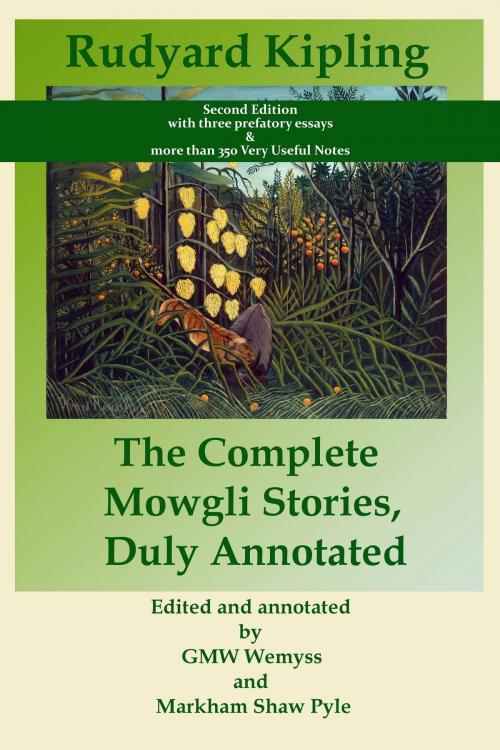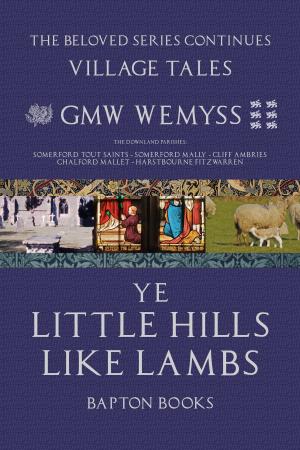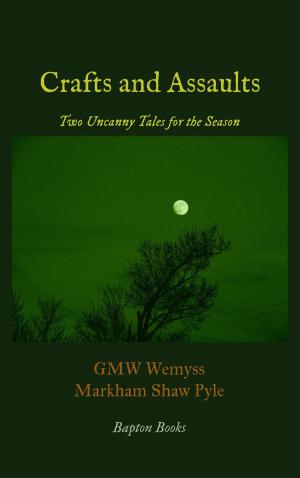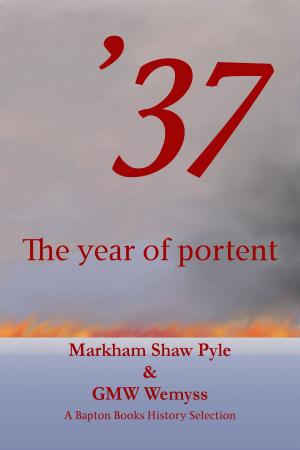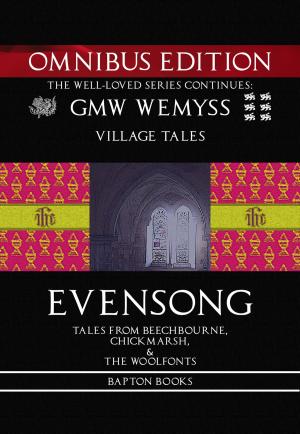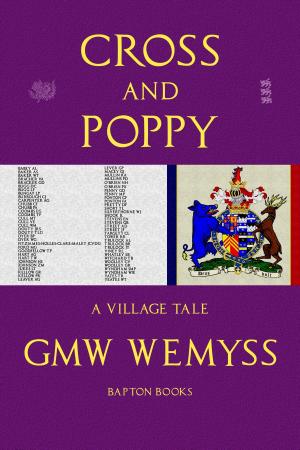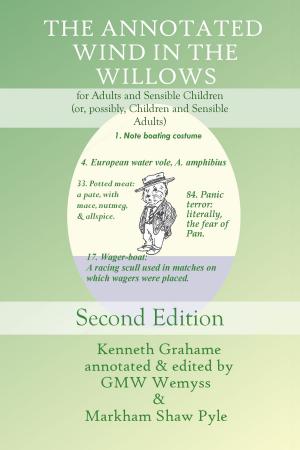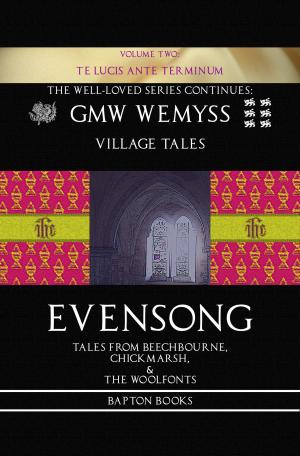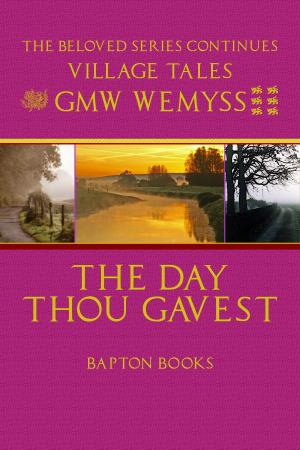| Author: | GMW Wemyss | ISBN: | 9781301155477 |
| Publisher: | Bapton Books | Publication: | July 7, 2013 |
| Imprint: | Smashwords Edition | Language: | English |
| Author: | GMW Wemyss |
| ISBN: | 9781301155477 |
| Publisher: | Bapton Books |
| Publication: | July 7, 2013 |
| Imprint: | Smashwords Edition |
| Language: | English |
With:
More than 350 annotations;
Three prefatory essays;
Every literary allusion, plant, and animal identified, with their cultural and religious connotations set out;
All the references that Victorian and Edwardian readers should have had to heart; and
Literary cross-references to later works influenced by Kipling:
This is the critical, annotated edition of the Jungle Book stories in which Mowgli appears.
Rudyard Kipling's tales of Mowgli, the Man-cub, raised by wolves, published in The Jungle Book, The Second Jungle Book, and Many Inventions, are not for children only. They have never been out of print, and they have shaped the English language and the British (and American) psyche to an extraordinary degree.
The stories that concern Mowgli's adventures, from his adoption by Mother and Father Wolf to his marriage and taking service in the Indian Forestry as an adult, have been collected, placed in their internal chronological order, and annotated in this volume by the historians GMW Wemyss - author of the account of Chamberlain's fall and Churchill's selection as Prime Minister, in The Confidence of the House: May 1940 - and Markham Shaw Pyle, author of'Fools, Drunks, and the United States': August 12, 1941, the story of how America, four months before Pearl Harbor, kept its army in being by one vote in the Congress, and of 2013's account of the correspondence between George Washington and Selina, Countess of Huntingdon, Benevolent Designs.
As in their previous work in this vein, The Annotated Wind in the Willows, for Children and Sensible Adults (or, possibly, Adults and Sensible Children), Mr Wemyss and Mr Pyle, the first a British historian, the second, an American historian, have ranged widely in annotating this classic work. It is prefaced with essays on imperialism, dryland farming, the climate and geography of Madhya Pradesh, Kipling's tribalism and his opposition to the Kaiser's nascent imperial adventurism, and the image of the Mother-figure. Over three hundred footnotes accompany the text, delving into ecology; irrigation; literary echoes from Bunyan, the Authorised Version, Milton, Blake, Chaucer, and Shakespeare; Kipling's literary influence upon Tolkien and Lewis; wergild; snake-cults and Greek oracles; ethnology; mana and tapu; Anglo-German and Anglo-Russian relations; forestry; and any number of subjects with these, Uncle Tom Cobleigh and All.
If you wish to enjoy these tales with deeper understanding; if you wonder what Buldeo has to do with Mr Sherlock Holmes' antagonist Dr Roylott; if you have ever wondered just why a Gond hunter reminds you of the frontman of Jethro Tull; or if you simply want a cracking good read of stories you but half-remember: here is your book.
With:
More than 350 annotations;
Three prefatory essays;
Every literary allusion, plant, and animal identified, with their cultural and religious connotations set out;
All the references that Victorian and Edwardian readers should have had to heart; and
Literary cross-references to later works influenced by Kipling:
This is the critical, annotated edition of the Jungle Book stories in which Mowgli appears.
Rudyard Kipling's tales of Mowgli, the Man-cub, raised by wolves, published in The Jungle Book, The Second Jungle Book, and Many Inventions, are not for children only. They have never been out of print, and they have shaped the English language and the British (and American) psyche to an extraordinary degree.
The stories that concern Mowgli's adventures, from his adoption by Mother and Father Wolf to his marriage and taking service in the Indian Forestry as an adult, have been collected, placed in their internal chronological order, and annotated in this volume by the historians GMW Wemyss - author of the account of Chamberlain's fall and Churchill's selection as Prime Minister, in The Confidence of the House: May 1940 - and Markham Shaw Pyle, author of'Fools, Drunks, and the United States': August 12, 1941, the story of how America, four months before Pearl Harbor, kept its army in being by one vote in the Congress, and of 2013's account of the correspondence between George Washington and Selina, Countess of Huntingdon, Benevolent Designs.
As in their previous work in this vein, The Annotated Wind in the Willows, for Children and Sensible Adults (or, possibly, Adults and Sensible Children), Mr Wemyss and Mr Pyle, the first a British historian, the second, an American historian, have ranged widely in annotating this classic work. It is prefaced with essays on imperialism, dryland farming, the climate and geography of Madhya Pradesh, Kipling's tribalism and his opposition to the Kaiser's nascent imperial adventurism, and the image of the Mother-figure. Over three hundred footnotes accompany the text, delving into ecology; irrigation; literary echoes from Bunyan, the Authorised Version, Milton, Blake, Chaucer, and Shakespeare; Kipling's literary influence upon Tolkien and Lewis; wergild; snake-cults and Greek oracles; ethnology; mana and tapu; Anglo-German and Anglo-Russian relations; forestry; and any number of subjects with these, Uncle Tom Cobleigh and All.
If you wish to enjoy these tales with deeper understanding; if you wonder what Buldeo has to do with Mr Sherlock Holmes' antagonist Dr Roylott; if you have ever wondered just why a Gond hunter reminds you of the frontman of Jethro Tull; or if you simply want a cracking good read of stories you but half-remember: here is your book.
